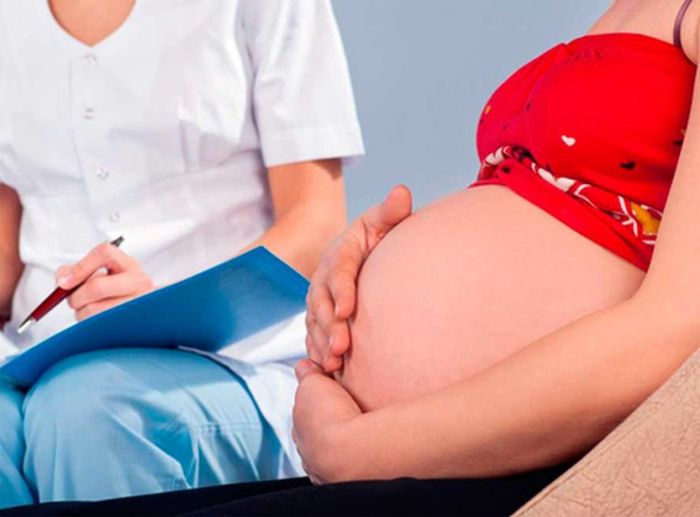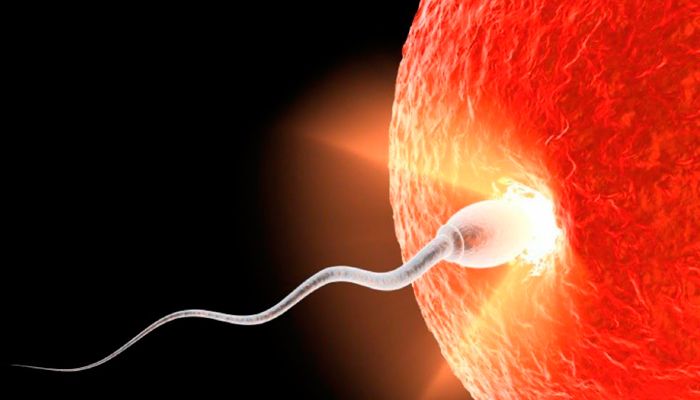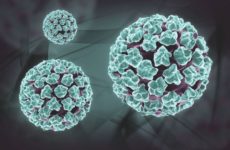The human papillomavirus is one of the most widespread on earth. There are about 100 types of HPV, but only 80 of them have been studied. Each type is endowed with a different degree of danger and causes a characteristic disease.
The most dangerous are those that contribute to the degeneration of cells. About 40 types of HPV affect the female genital organs. 30% of women of reproductive age face a problem.

When planning a pregnancy, a thorough examination is necessary to prevent unwanted consequences and spontaneous abortion. HPV is transmitted sexually, although there are cases of domestic infection.
Содержание:
The harmful effects of the papillomavirus on women
HPV, which affects the genitals of a woman, is often asymptomatic, but leads to serious diseases:
- cell dysplasia.
- cervical cancer, etc.
HPV manifests itself in women in the form of papillomas and condylomas (pointed and flat). Papilloma (flesh or pinkish in color) has the shape of a papilla. According to statistics, cervical papilloma is in second place after herpes, which affects the genitals. HPV is the root cause in 99% of cases of cervical cancer.
The degeneration of cells can proceed slowly or rapidly. Condylomas are subject to such a process. More dangerous in oncological practice are flat condylomas, since they are subject to the rapid degeneration of a benign formation into a malignant one.
Papillomavirus has a powerful effect on the immune system, destroying it, which affects the health of a woman, the bearing of a child during pregnancy and the health of offspring. It is possible to get pregnant with HPV, but monitoring is required.
Conception of a child with papilloma
HPV is not a barrier to conception and is compatible with pregnancy. But this cannot be said for sure. It is appropriate to mention some factors:
- Virus type.
- Its localization.
- Size and shape.
- HPV response to pregnancy.
- Individual characteristics of the organism.
Together, these factors prevent conception. They also give direction to the course of pregnancy. But giving birth with HPV is acceptable.
During pregnancy, the virus begins to progress rapidly, which reduces the function of the immune system. Planning for pregnancy is obvious.

In some cases, the onset of pregnancy becomes impossible:
- The destructive effect of the virus leads to a malfunction in the immune system, the body becomes vulnerable to infectious diseases that prevent pregnancy.
- Pregnancy does not occur with failures in the immune system and at conception, when the process of programming the immune system is disrupted. In this case, the pregnancy is terminated at the very beginning (or later): the body rejects the embryo as something alien. Here consider options for immune infertility.
- In some cases, the process of fertilization is complicated by a change in the composition of the cervical mucus, which contributes to normal fertilization. Such processes are caused by the presence of genital warts on the mucosa. Cervical fluid serves as a conductor for the sperm. A change in its composition prevents this and a woman cannot become pregnant with papilloma, or the process becomes much more complicated.
Planning
Planning for pregnancy with HPV is natural and expedient. It is possible to get pregnant with cervical papilloma, but the virus causes a number of complications. The first thing to do when planning a pregnancy is to get tested for HPV.
A smear for cytology is a necessary minimum that allows you to diagnose it. With a positive reaction, the doctor prescribes treatment, after which pregnancy is possible. Getting rid of HPV is a reality.
Complex pathology may require surgical intervention, as a result of which pregnancy (in rare cases) becomes impossible. In such cases, experts recommend IVF (in vitro fertilization).
Symptoms of the disease in pregnant women
The tumor does not cause discomfort and pain. Formations resembling warts appear on the mucous membranes of the genital organs, in the anus. These are soft, moist papillae that are flesh or pinkish in color. Sometimes in shape they can resemble cauliflower inflorescences.
Large and small, convex and flat, numerous or single. The incubation period after contact with an infected partner is several weeks (sometimes several months). For diagnosis, a cytological examination (smear) and colposcopy (visual examination using an optical device) are used. During pregnancy do not produce a biopsy.
There are cases when HPV, first detected in a woman during pregnancy, completely disappears after childbirth or becomes significantly less when it comes to abundant growths.

How dangerous is the disease for women in position?
Is it possible to give birth with HPV disease? An exciting question. Sometimes HPV during pregnancy occurs without consequences. More often there is a significant increase in papilloma, which is an obstacle during childbirth. The primary virus can lead to termination of pregnancy at all stages.
During pregnancy, a woman’s body undergoes major changes, especially in the immune and endocrine systems. HPV makes the body practically helpless, unable to resist infections, viruses, etc. HPV types 16 and 18 are especially dangerous, which tend to degenerate into a malignant tumor.
Relapse, a significant progression of the disease require its immediate treatment, however, during pregnancy it may become impossible. HPV entails a decrease in the functioning of the immune system, which leads to the occurrence of infectious, viral diseases. Each infection in this position is fraught with disastrous consequences. In the absence of natural protection, the body of the expectant mother suffers on many levels.
Treatment
A woman infected with HPV is at risk. The level of risk depends on the type of HPV, which can be determined by a thorough examination. Dangerous types of the virus require immediate treatment:
- surgical method.
- Removal of papillomas with a laser.
- Cryotherapy (treatment with liquid nitrogen).
A pregnant woman cannot carry out such treatment, so it is postponed for the postpartum period. For any type of HPV, immunomodulators are prescribed, since when HPV is infected, it is the immune system that suffers in the first place.
Pharmaceutical preparations are not prescribed for a pregnant woman, it is permissible to use natural remedies that strengthen the immune system: echinacea, licorice root, bee products, nuts, berries, etc. The role of nutrition is extremely important!
Nutrition should not be easily balanced, the emphasis should be on natural vitamins and minerals (micro- and microelements), which are found in large quantities in green vegetables and algae. Carrots, green apples, and pomegranate should be present in the daily diet of a pregnant woman.
Individually, the doctor prescribes (with an obvious threat) antiviral drugs , which are selected scrupulously, with minimal risks for the child.
At the same time, the condition of the woman and the importance of taking these drugs are assessed so that their benefits exceed the adverse effects on the fetus. Constant supervision of doctors (gynecologist, oncologist, immunologist) during this period is mandatory. The main treatment is carried out after childbirth.
Consequences for the child
A mother’s disease is fraught with infection of the child with HPV during childbirth. In practice, these cases are less than 50%, but they do exist. HPV in a baby does not always appear immediately, it can happen only after a few months or even years.
However, there are cases of rapid manifestations when the virus infects the larynx of a newborn. Such a picture is observed in the first month of his life and is fraught with serious consequences.
Some experts advocate cesarean section in infected women, but this is not confirmed by experience, since HPV is transmitted to the child during such childbirth.
In cases where the virus infects the trophoblast (future placenta), which nourishes the embryo, the pregnancy is terminated already in the early stages.
childbirth
When papillomas literally “line” the birth canal, doctors still resort to caesarean section, since the risk of infection of the child in this case increases significantly.
Perhaps this is the only possible complication. Control? Yes, closer. But childbirth proceeds as expected.
After childbirth, the mother and child should be screened for the presence of the virus. If the virus is detected, it is necessary to undergo appropriate treatment, which in the first place should be aimed at strengthening the immune system. A good immune system is able to resist HPV.







